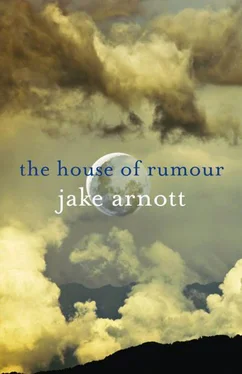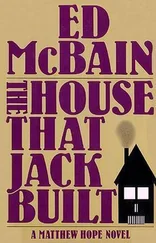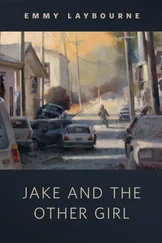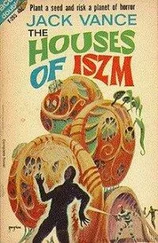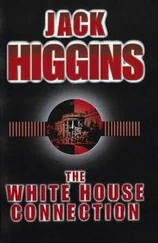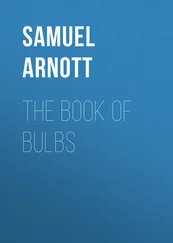You unbuckle your belt and pull your jeans and boxer shorts down.
And she became the person she had always been. Me. Here, you say, taking hold of your penis. It’s beautiful, isn’t it? I mean, aesthetically.
She’s glaring at it, eyes wide.
I’m very proud of it. It’s my favourite one. Custom built, you know. I had three fittings at this place in Amsterdam. Here, have a closer look.
And you gently detach it. It fits so neatly and you can hardly notice the extra-lightweight transparent harness that lightly girdles your hips.
Cyberskin, you tell her. A blend of five different silicone materials with a flexible rod at its core. Its even got an internal urinary tube so I can piss with it standing up if I want to. I didn’t want genital reconstruction surgery, well, not until they can come up with something you can fuck with properly. This, you say, holding it up, well, it’s an improvement on nature. It’s real enough. Like the rest of me.
I was Jenny, you say. Now I’m Johnny. Now love me for what I am.
There is an art to forgetting. History soon becomes dementia, a babble of voices clamouring to be heard. One has to have a selective memory to make any sense of the past. To forget is a cautious act of the will, more the gaining of a faculty than the loss of one. And through all the long days of his confinement, he had made it his study, his device. A trick. Revenge on the clever ones that had tricked him. Over the years there had been so many occasions when he had methodically assumed a state of amnesia that even he was unsure whether it was faked or not. And then he would have to work his way back to the beginning.
Memory: this is how we travel in time. Backwards and forwards, trying to escape the prison of present consciousness. Forgetfulness was his liberation. His retreat. His place of refuge. This secret world with no official record.
Half his life had seemed a preparation for senility. Now he truly felt as old as Methuselah, sitting in the summerhouse, waiting for the end. He had long wondered if old age might grant him its promised release from recollection. A true oblivion after all his long days of pretence. But time had its own trick to play on him. His mind was almost as sharp as the night on which he had made his flight nearly fifty years earlier. Now he was ready to fly once more, he decided. He could go right back. It was all as bright and vivid as ever.
A childhood in Egypt. Alexandria. The nights in Ibrahimieh, in a garden by the desert with its rich evening scent of violet, anemone and narcissus. He would walk out with his mother beneath the vast celestial canopy. She was the empress then, the queen of his universe. She would trace the shapes of constellations that wheeled above and pick out the brighter stars, naming them for him in a magical incantation: Vega, Cassiopeia, Aldebaran. Pointing to the wandering planets, she would tell him that the heavenly bodies had fixed courses, which mapped each lifetime that passed below. You will be a bright star one day, Rudi, she promised.
The days brought a harsher light to their quiet suburb of Alexandria, the fierce sun with its burning-glass focus. The chamsin wind conjured sandstorms and a salt breath to the air as it foamed the waves of the sea beyond. He would hide from the sunlight as it threatened to darken the olive skin he had inherited from his Greek mother. His father recounted the country of his golden ancestors. ‘We have our place in the sun, Rudi,’ he was told, an echo of something that had recently been said by the Emperor, ‘but remember you have a homeland. Your fatherland.’
One afternoon he noticed a thin Greek man in the street outside their house, standing absolutely motionless at a slight angle to the universe. Remembering his manners, he asked the man if he might help him. The Greek gave him an absurdly beatific smile.
‘I walked here by chance,’ the man told him and pointed up at a balcony across the street. ‘I used to visit here when I was young. Now this one and the next one are rented as commercial offices. Ah! The room, the Turkish rug, the shelf with two yellow vases.’
Rudi pointed to the villa of his family. ‘We live there,’ he said.
‘Yes, yes,’ the Greek replied absently, shielding his eyes with a hand as he looked up at the window opposite.
‘Soon we will be leaving.’
The man turned to look down at him.
‘Leaving?’
‘For Europe.’
The Greek laughed.
‘Perhaps it’s Alexandria that’s leaving.’
‘That’s silly.’
‘Yes it is, isn’t it?’ The man sighed and began to wander away, gazing up one last time to study the wall of the house beyond, the balcony, the window. ‘But when you go, bid farewell to the Alexandria you are losing.’
The heat had become unforgiving and he imagined, as he often did, a cold land far to the north. A mythical island set in a frozen sea. He dreamt of a black sun, an opening in the sky, a cool tunnel that he might fly through to the pure Arctic wastes. Even from the beginning he had longed for flight.
He was twelve when they left Egypt. They took a steamer from the port and he stood on deck with his father who pointed out the column of Pompeius and the lighthouse built by Alexander the Great. ‘Take a long look at that land,’ he told Rudi. ‘You won’t see it for many years to come.’ He thought of the Greek man in the straw hat as he watched the coastline slowly recede from sight.
This was his first attempt at the art of forgetting: that the home of his childhood could become immemorial dream. An ancient myth. At boarding school in Germany he was awkward and conscious of his Levantine looks, his delicate manner. His classmates mocked his oily black hair and beetle brows, calling him ‘The Egyptian’. He grew determined to prove his bond with his father’s land, adopting a strict sense of patriotism. He learnt the Fleet Calendar by heart and could recite the statistics of all the principal imperial battleships. He developed a passion for astronomy, to understand the stars he had observed with his mother, though it was made clear that he was expected to follow his father in the family export business.
Then the Great War came and liberated him from the tedious trade of commerce. ‘Rejoice with me,’ he wrote to his family when he had enlisted in the 1st Bavarian Foot, ‘I am an infantryman.’ Through pitch-black nights he crouched in the sunken mud-filled trenches, watching the old fighters squat among the milk-white faces of lads who, a few days before, garlanded with flowers and singing, had marched away through the streets of home. In the glaring lights of rockets and star shells, the youngsters gazed bemused at their fellows lying so still through the bombardment. Despite the dreadful noise, the awful scent of putrefaction mingled with the acrid clouds of gas and high explosive, comrades would huddle together and find a bitter comfort, each man gently leaning on a friend, seeking out a respite from the terror.
One cold morning, gazing up over the rim of the trench, he spied a formation of aeroplanes glinting in the dawn light. Like watching heavenly angels from an open grave, he mused with a smile. He knew then where hope belonged: in the sky.
At Verdun he took a shrapnel wound and was sent to a hospital at Bad Homburg. On convalescent leave he applied for a transfer to the Flying Corps. He was turned down and posted to a reserve regiment on the Eastern Front. Here he was injured once more: a Romanian bullet went right through him, missing his heart and his spine by a finger’s breadth. It was after he recovered from this, in the very last year of the war, that he was accepted into the imperial air force.
Flight! Yes, it came so naturally to him. His calling, his mission in the world. The sky was his element. Mankind’s future would be determined in the air, he decided, just as its destiny was written in the stars beyond. A war in heaven would end all arguments. He flew reconnaissance sorties for the final offensive on the Western Front.
Читать дальше
